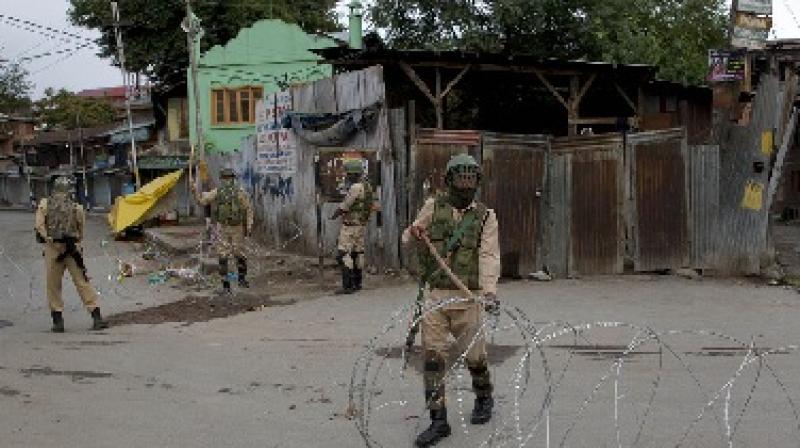French Foreign Ministry calls Pak, urges for ‘restraint, de-escalation’ over Kashmir
French put out a statement after the Minister for Europe and Foreign Affaris, Jean-Yves Le Drian, spoke to Pakistani counterpart on Tuesday.

New Delhi: The nation of France has called for "restraint and de-escalation" in a reported phone-call with Shah Mahmood Qureshi, the Pakistani Foreign Minister, asserting that it is "essential to abstain from any measure likely to aggravate tension".
The French put out a statement after the country’s Minister for Europe and Foreign Affaris, Jean-Yves Le Drian, spoke to his Pakistani counterpart on Tuesday.
"The ministers raised the situation in Jammu and Kashmir. Mr Jean-Yves Le Drian recalled France's constant position on Kashmir -- it is up to the two countries, under the framework of their bilateral political dialogue, to resolve this dispute so as to establish lasting peace," the French ministry spokesperson said in the statement, reported NDTV.
"France makes a call to the parties for restraint, de-escalation, and easing the situation. It is essential to abstain from any measure likely to aggravate tensions," the statement added.
Pakistan, for a long time, has been attempting to gather support from other nations for its stand against India's decision to end special status to Jammu and Kashmir and split it into two union territories.
On Tuesday, Islamabad even said that it would knock at the doors of the International Court of Justice - where the two neighbouring countries recently faced off over Kulbhushan Jadhav, the Indian on death row in Pakistan.
France's statement came hours after US President Donald Trump, who once again, offered to mediate on Kashmir, saying: "Kashmir is a very complicated place. You have Hindus and you have the Muslims and I wouldn't say they get along so great...I will do the best I can to mediate....you have two counties that haven't gotten along well for a long time and frankly, it's a very explosive situation."
Trump had spoken to both Prime Minister Narendra Modi and Pakistani counterpart Imran Khan a day before on call. He also indicated that he would take up the subject when he meets PM Modi over the weekend in France for a summit of the Group of Seven (G7) industrialised nations.
Last week, Pakistan's attempts to whip up the subject at the United Nations Security Council fell flat after most of the participating nations agreed that it was a bilateral matter between New Delhi and Islamabad. The meeting of the 15 nations - five permanent members and 10 rotating members - ended without any resolution, which was seen as a snub to Pakistan and its ally China.

